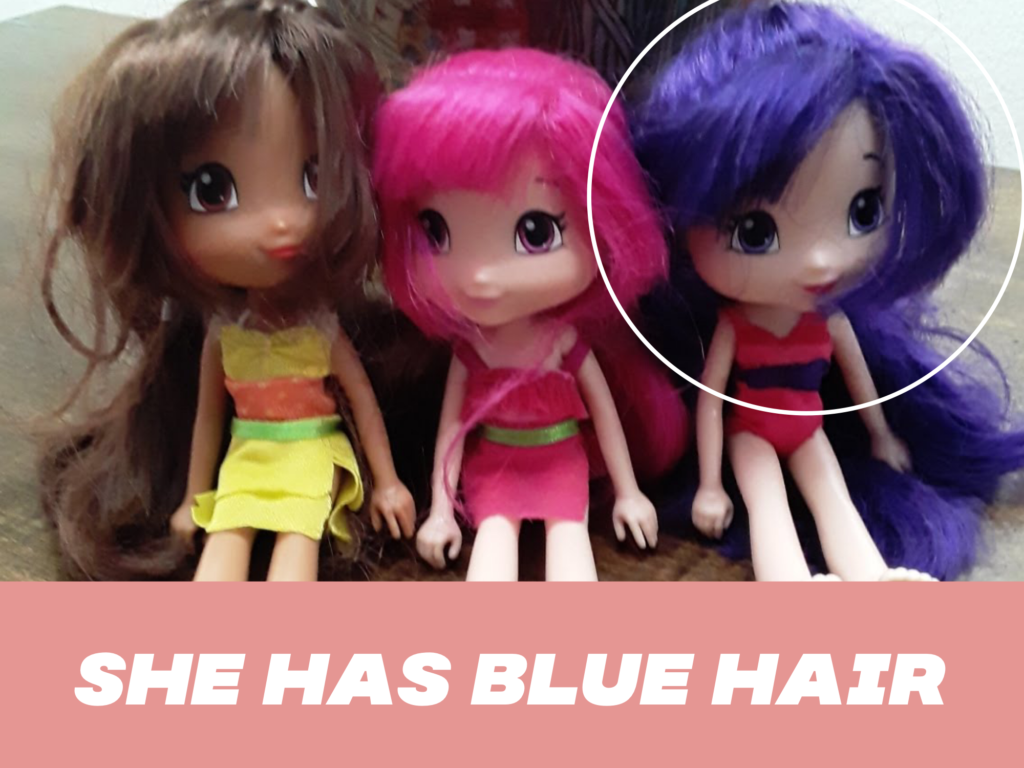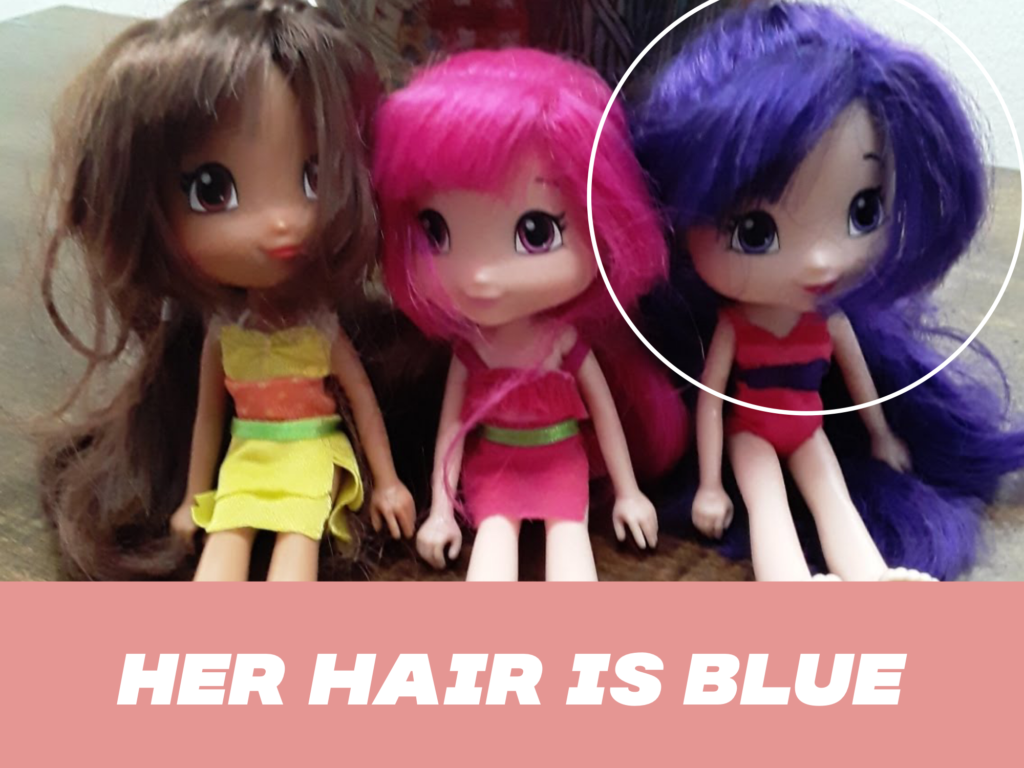In what way would you present this sentence to a child who is having trouble with putting together speech? The sentence from first or the second image?


In my opinion it is the second. We are trying to lessen the demands by allowing frequent opportunities to practice the same words over and over to formulate sentences. The only thing that changes from sentence to sentence is one word. The carrier phrase stays “her hair is_____” During this doll activity, I presented this image to the child and we worked on creating a sentence and the ONLY thing that changed from sentence to sentence was the last word, the hair color.
This is a predictable line activity in a more advanced level. An earlier level or example might be a from a repeated line song like “Old McDonald” where the only thing that changes is the animal. Those early nursery rhymes are precursor to helping us learn more advanced language is later on. Check out more information on this in our other posts!